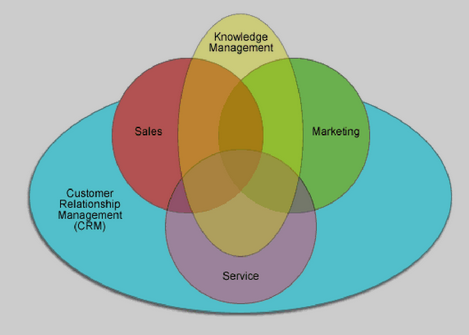Customer Relationship Management (CRM) systems play a significant role in influencing customer loyalty. CRM is not just a technology but a comprehensive strategy aimed at managing and nurturing customer relationships throughout the entire customer lifecycle. This study embarks on the impact of customer relationship management (CRM) on customer loyalty:

Personalization:
CRM systems enable businesses to collect and analyze customer data, providing insights into individual preferences, behaviors, and purchase history. With this information, businesses can personalize interactions, offers, and communications, making customers feel valued and understood.
Improved Customer Service:
CRM systems streamline customer service processes by providing a centralized database of customer information. This allows service representatives to access relevant details quickly, address customer queries more efficiently, and provide personalized solutions. Efficient and personalized customer service contributes to increased customer satisfaction and loyalty.
Targeted Marketing Campaigns:
CRM data allows businesses to segment their customer base and create targeted marketing campaigns. By sending relevant and personalized messages to specific customer segments, businesses can increase the likelihood of engaging customers and driving repeat business.
Customer Retention Programs:
CRM systems help in the design and implementation of customer retention programs. By identifying at-risk customers, businesses can proactively address concerns, offer incentives, and tailor retention strategies to specific customer segments, ultimately enhancing loyalty.
Cross-Selling and Upselling Opportunities:
Through CRM insights, businesses can identify opportunities for cross-selling and upselling. By understanding customers’ needs and preferences, businesses can recommend complementary products or suggest upgrades, increasing the average transaction value and strengthening the customer-business relationship.
Consistent Communication:
CRM systems facilitate consistent and timely communication with customers. Regular and relevant communication helps maintain top-of-mind awareness and fosters loyalty.
Customer Feedback and Surveys:
CRM systems often include features for collecting customer feedback and conducting surveys. By gathering insights directly from customers, businesses can identify areas for improvement, address concerns, and demonstrate a commitment to customer satisfaction, which contributes to building trust and loyalty.
Predictive Analytics:
Advanced CRM systems leverage predictive analytics to forecast customer behavior and preferences. By anticipating customer needs, businesses can proactively tailor their offerings, provide personalized recommendations, and enhance the overall customer experience, thereby fostering loyalty.
Efficient Problem Resolution:
CRM tools enable businesses to track and manage customer issues and complaints systematically. Quick and efficient problem resolution can have a significant impact on customer loyalty, demonstrating that the business values and prioritizes customer satisfaction.
Customer Loyalty Programs:
CRM systems often support the implementation of customer loyalty programs. By tracking customer transactions and behaviors, businesses can reward loyal customers with exclusive offers, discounts, or other incentives, encouraging repeat business and brand loyalty.
In summary, CRM contributes to customer loyalty by enabling businesses to understand, engage, and serve their customers more effectively. By leveraging customer data and streamlining processes, CRM systems help businesses build stronger relationships, deliver personalized experiences, and consistently meet or exceed customer expectations.
